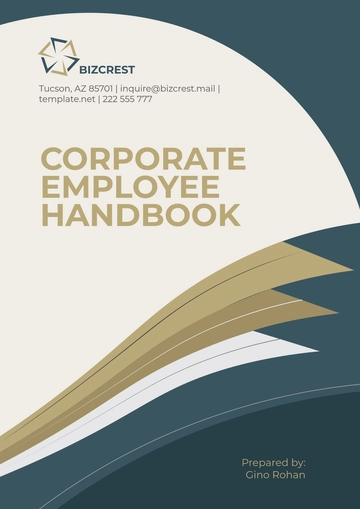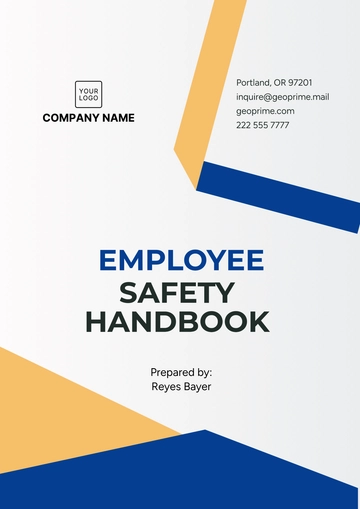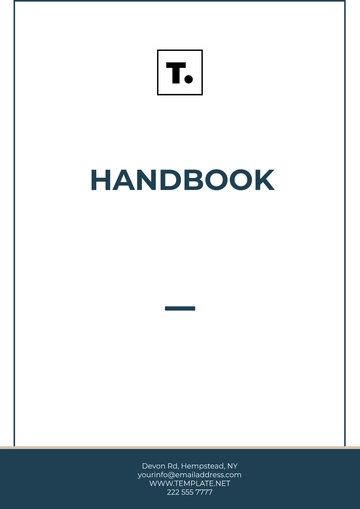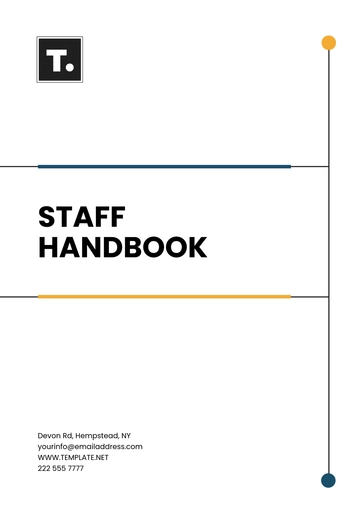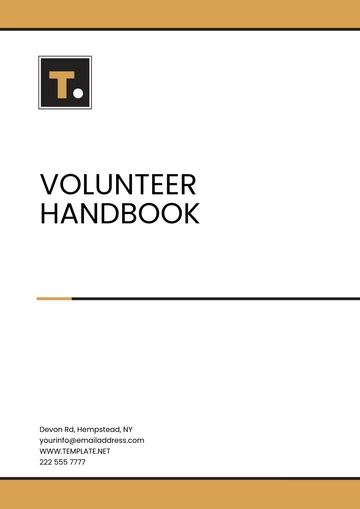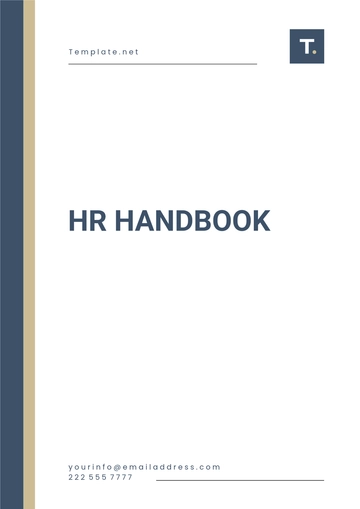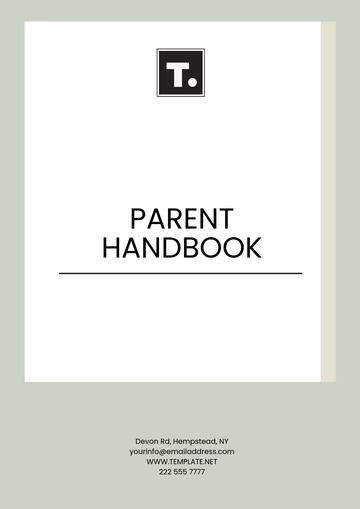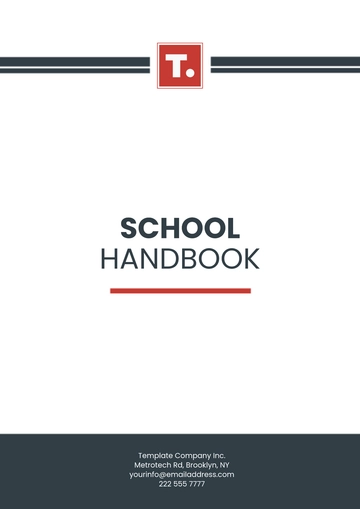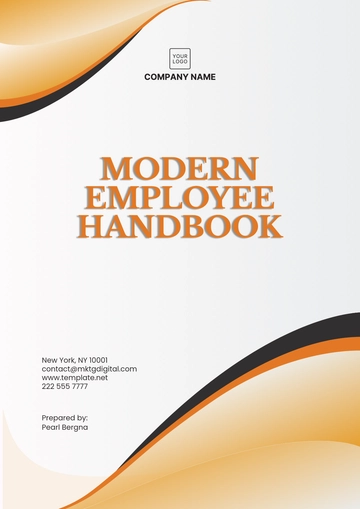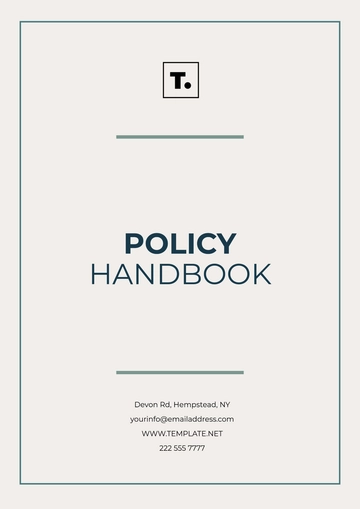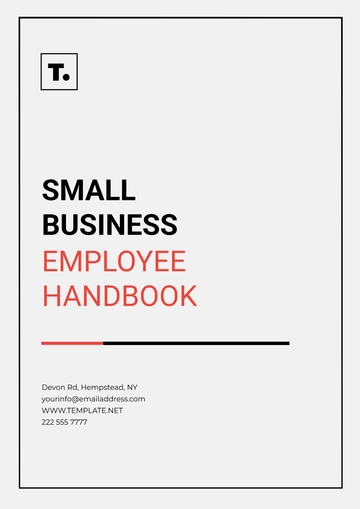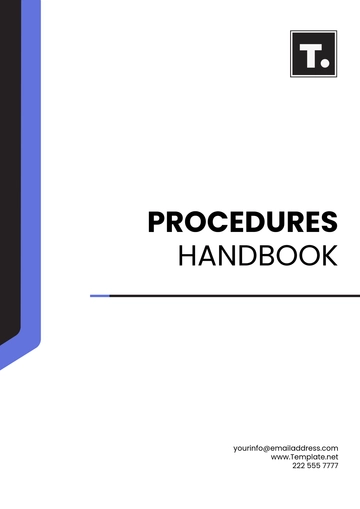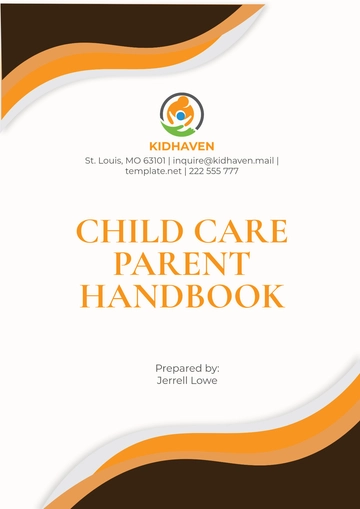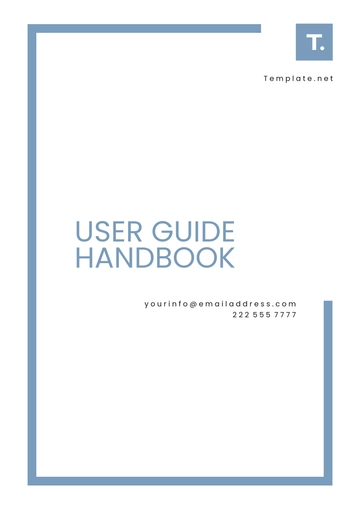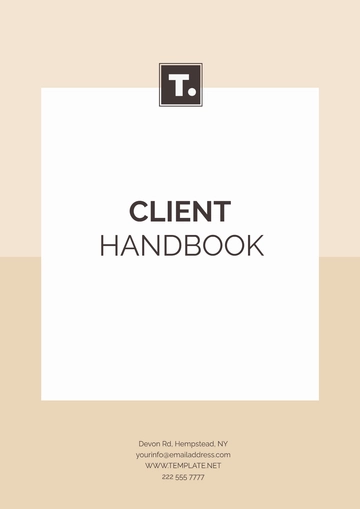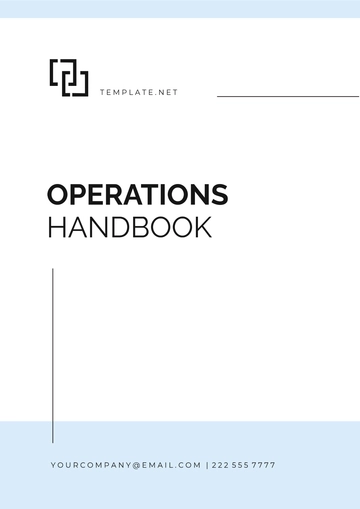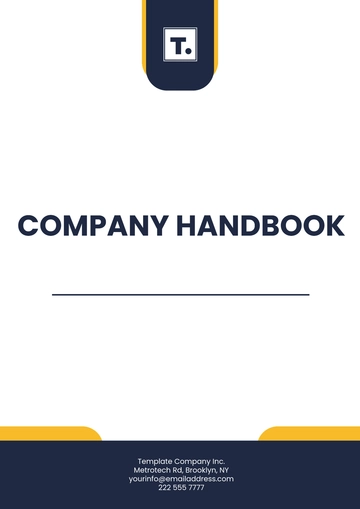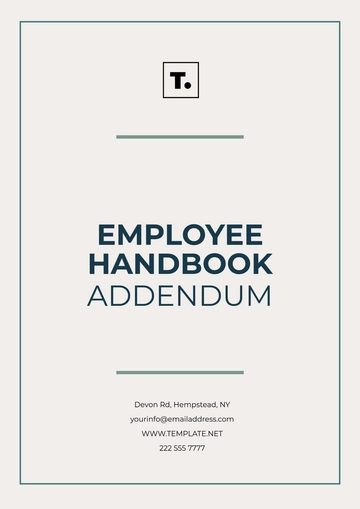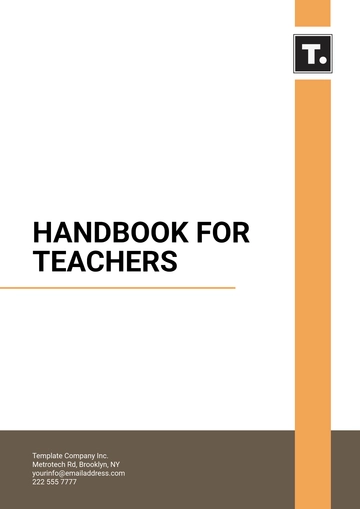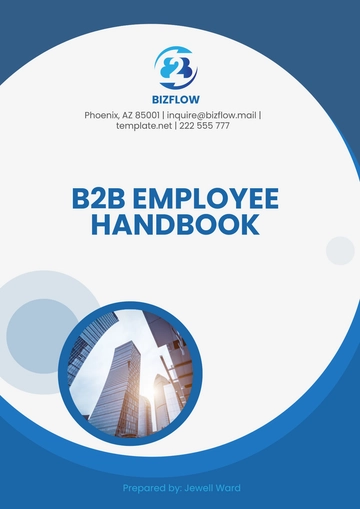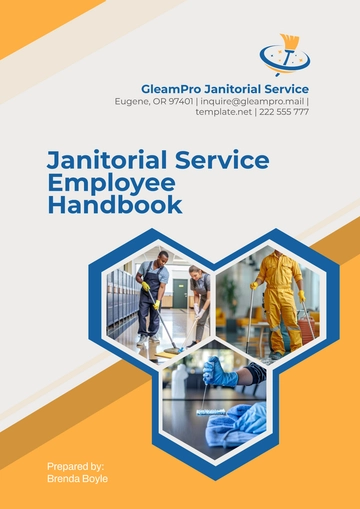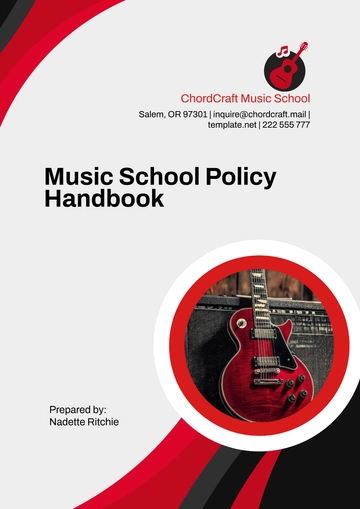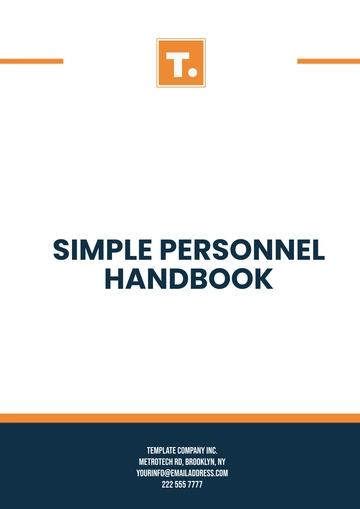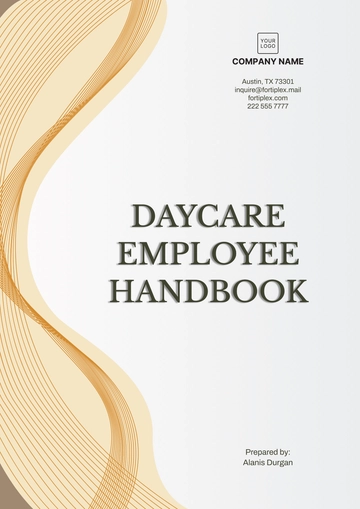Free Policy Research Handbook
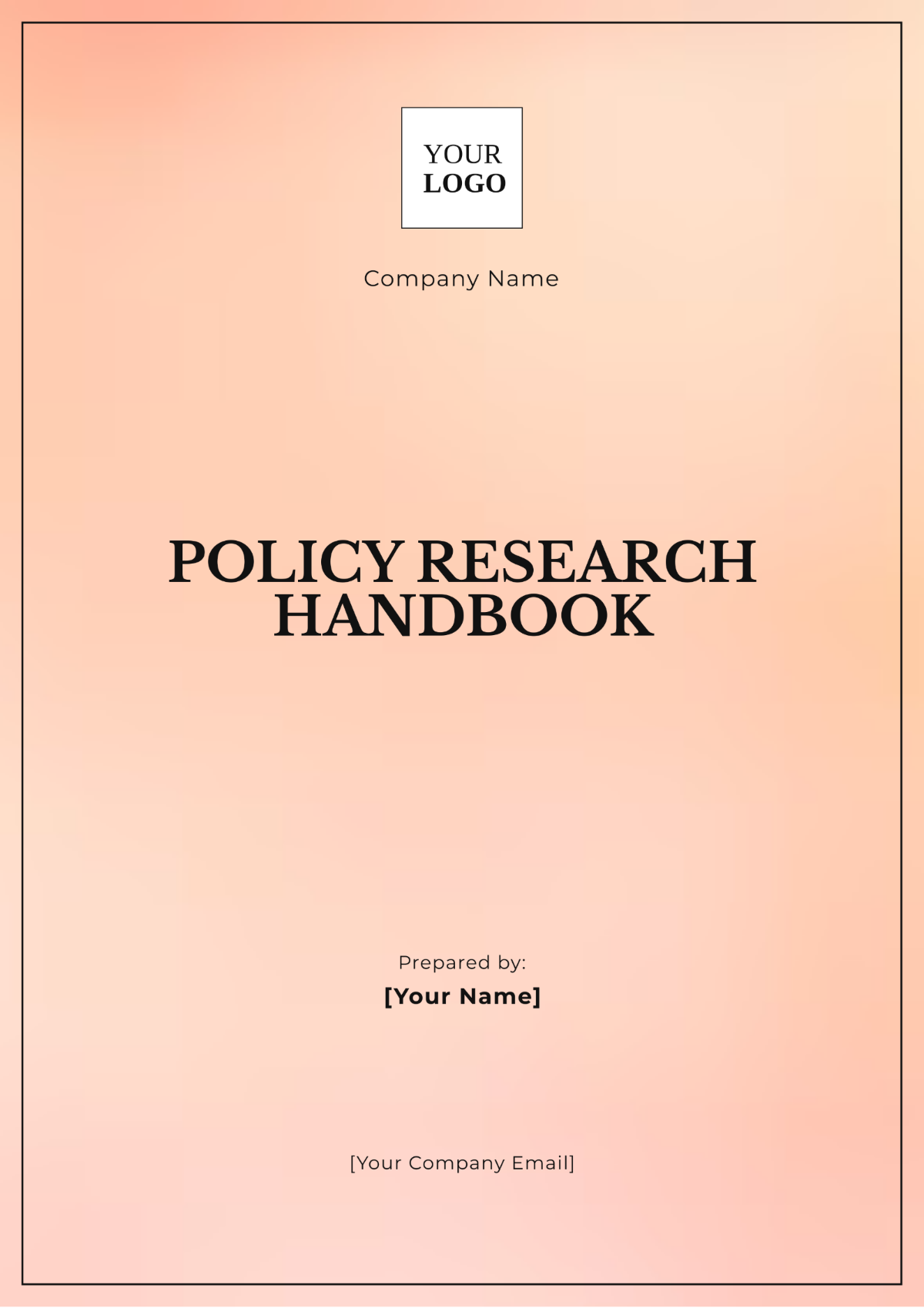
Executive Summary
This Policy Research Handbook, prepared by [Your Company Name], provides a structured guide for policy analysts in evaluating Teacher Professional Development Programs. The aim is to assess the effectiveness, impact, and overall value of these programs in improving teacher performance and student outcomes. The handbook outlines the research design, methodologies, and data collection strategies, and includes sections on data analysis, case studies, ethical considerations, and resources to support the evaluation process.
Introduction
Teacher Professional Development Programs are essential for enhancing teaching quality and educational outcomes. This handbook offers a systematic approach to evaluating these programs, assisting policy analysts like [Your Name] in making well-informed recommendations based on comprehensive evidence.
Research Design
The research design for evaluating Teacher Professional Development Programs includes:
Objective: To assess the effectiveness and impact of various professional development programs on teacher performance and student learning outcomes.
Scope: The evaluation will cover multiple programs across different regions and educational settings.
Duration: The research will be conducted over 12 months.
Key Questions: What are the most effective methods of professional development? How do these programs impact teacher practices and student outcomes?
Methodologies
The methodologies employed in this evaluation include:
Quantitative Analysis: Surveys, tests, and statistical methods to measure program impact.
Qualitative Analysis: Interviews, focus groups, and case studies to understand program implementation and teacher experiences.
Comparative Analysis: Comparing different professional development programs to determine relative effectiveness.
Data Collection
Method | Description | Tools | Frequency |
|---|---|---|---|
Surveys | Collect quantitative data from teachers and students | Online survey platforms, paper forms | Semi-annually |
Interviews | Obtain in-depth feedback from program participants | Audio recorders, transcription software | Quarterly |
Focus Groups | Discuss program experiences with small groups | Recording equipment, moderator guides | Bi-annually |
Observations | Assess classroom practices and teacher engagement | Observation checklists, video recordings | Monthly |
Document Review | Analyze program materials and outcomes | Program reports, lesson plans | As needed |
Data Analysis
Analysis Type | Description | Tools | Frequency |
|---|---|---|---|
Statistical Analysis | Analyze survey and test results | Statistical software (e.g., SPSS, R) | Semi-annually |
Thematic Analysis | Identify themes from qualitative data | Qualitative data analysis software (e.g., NVivo) | Quarterly |
Comparative Analysis | Compare different programs and outcomes | Comparative frameworks, statistical tools | Annually |
Impact Assessment | Evaluate the overall impact of the programs | Impact assessment models | End of study |
Report Writing
The report writing process includes:
Drafting: Initial draft based on data analysis and findings.
Reviewing: Peer review and feedback to ensure accuracy and comprehensiveness.
Revising: Incorporating feedback and refining the report.
Finalizing: Preparing the final version for dissemination.
Case Studies
Case Study | Description | Programs Evaluated | Findings |
|---|---|---|---|
Case Study 1 | Analysis of a Regional Teacher Development Program | Program A, Program B | Increased teacher engagement, mixed impact on student outcomes |
Case Study 2 | Evaluation of a national professional development initiative | Program C, Program D | Improved teaching practices have a significant impact on student performance |
Case Study 3 | Review of a specialized training program | Program E | High satisfaction among teachers, moderate impact on student achievement |
Ethics
Ethical Consideration | Description | Implementation |
|---|---|---|
Informed Consent | Ensuring participants are fully aware of the study's purpose and their rights | Consent forms, information sessions |
Confidentiality | Protecting the privacy of participants and their data | Data anonymization, secure storage |
Integrity | Maintaining honesty and transparency in reporting findings | Adherence to research standards, ethical guidelines |
Avoiding Bias | Ensuring unbiased analysis and reporting of data | Use of diverse data sources, peer review |
This handbook is designed to assist policy analysts at [Your Company Name] in evaluating Teacher Professional Development Programs, ensuring a thorough and ethical approach to improving educational practices.
- 100% Customizable, free editor
- Access 1 Million+ Templates, photo’s & graphics
- Download or share as a template
- Click and replace photos, graphics, text, backgrounds
- Resize, crop, AI write & more
- Access advanced editor
Template.net offers the Policy Research Handbook Template, a comprehensive solution for organizing your policy research. This customizable handbook template features editable sections and a user-friendly design, perfect for detailed research documentation. Editable in our Ai Editor Tool, it ensures a smooth editing process and allows you to tailor the content to your specific needs.
